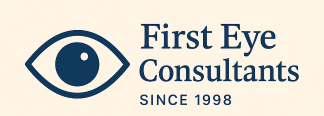Introduction
I have spent decades as an eye doctor in rural Africa — among forgotten villages, broken hospitals, and long queues of the blind. What I share now is not research, but memory. Not theory, but what I’ve seen and felt. These are reflections from the field — from the silent world of those who wait in the dark, and from the light we bring, one patient at a time.
1. The Blind Are Not Just Patients — They Are People Frozen in Time
When a farmer loses vision, the harvest stops. When a mother cannot see, she cannot cook, wash, or guide her
child. Blindness is not just a physical condition — it is social paralysis.
I’ve met elders left in back rooms, children with untreated cataracts called “cursed,” and women who sold their livestock to reach the hospital too late.
2. Sometimes You Are the Only Doctor for 100 Miles
There were weeks when I was the only eye care provider for several districts. My kit had:
- A torch
- A direct ophthalmoscope
- A trial lens set
- Antibiotic drops
- And my hands
No slit lamp. No imaging. No laser. Yet people came. And when I did cataract surgery with the tools we had, and they could see again, we had all we needed.
3. They Walk for Hours, Even Days — Hoping for a Glimpse
People came barefoot. Some carried on backs. One man arrived blind and bleeding, led by a boy with a piece of rope. The trust they place in you — a stranger with a white coat — is humbling. And the hope they carry is heavier than any bag.
4. Some Things No Textbook Teaches
- How to tell a grandmother her blindness is permanent
- How to explain to a father that the herbs he trusted made his child worse
- How to counsel a girl hiding her strabismus behind shame
- How to say “come back in a year” when you know they may not return
There is a language of compassion that goes beyond protocol.
5. Not All Stories End in Light
I’ve cried after losing an eye to trauma we couldn’t treat in time.
I’ve had to turn away patients when the theatre was closed for lack of power.
I’ve watched babies go blind from vitamin A deficiency.
And I’ve whispered apologies to elders for surgeries we couldn’t offer that year.
But even in the losses, there was dignity in trying.
6. And Then There Are Miracles
- A woman who screamed with joy the morning after cataract surgery — “I can see the firewood!”
- A boy who went from failing school to top of class after receiving glasses
- A grandmother who touched my hand after lid surgery and said, “I will sleep tonight.”
One restored eye changes more than vision — it restores meaning, purpose, hope.
7. What Works Isn’t Always What’s Fancy
- A clean, well-run clinic does more than an imported machine
- A nurse with good training can save more sight than a foreign specialist who flies in for a week
- A box of ready-made reading glasses can transform 50 lives in a day
- Empathy, presence, consistency — these are the real instruments of rural eye care
8. Lessons I’ve Learned
- Start where people are — physically and mentally
- Don’t wait for the perfect program — begin with what you have
- Train locals, trust them, support them
- Eye care isn’t about surgery — it’s about restoring people to life
- Never underestimate the power of one patient who sees again — they’ll tell the whole village
9. Why I Stayed
Because when a blind man touches his granddaughter’s face after years…
Because when a mother sees her baby’s eyes again after trachoma surgery…
Because in that moment, there is no richer reward.
I stayed because someone had to.
